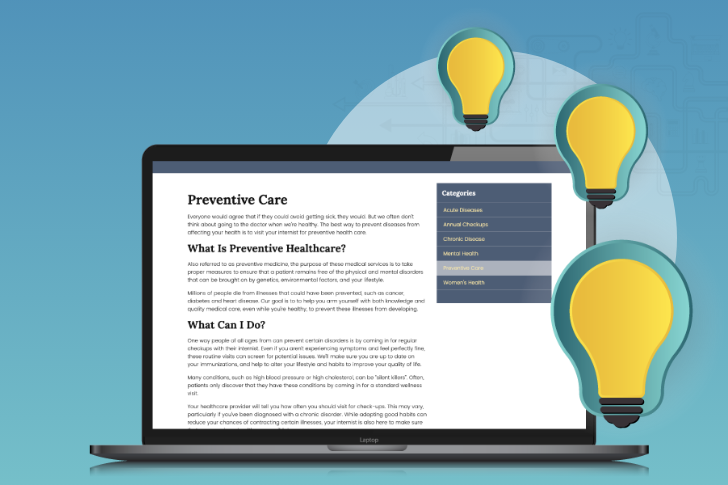How to Make Sure Patients Don’t Leave Your Website
Have you ever clicked a website only to realize it didn’t have what you were looking for?
You probably closed it and started looking somewhere else.
If this happens when patients visit your website, it will increase your bounce rate, which could harm your search rankings over time.
What Is a Bounce Rate?
Your bounce rate is the percentage of patients who visit your website but never take an action. These actions can include:
- Engaging with content (blogs, etc.)
- Filling out a form (appointment requests)
- Clicking through to another web page on your website
- You want to keep your bounce rate as low as possible. A high bounce rate can negatively affect your rankings in search engines.
Search Engines Want to Be Helpful
Search engines want to provide helpful and relevant information to their users. When they notice that users consistently leave a website without taking action, they may penalize that site in search rankings because they assume that it’s not a helpful web page.
Patients may leave your website for various reasons. Here are some of the most common reasons:
Slow Page Load Times: Your website should load within four seconds (two seconds is ideal).
Irrelevant Content: If a patient clicks your website and doesn’t find what they’re looking for, they’ll go somewhere else.
Difficult Readability: People read differently on the web than on paper. Web content must be easy to skim. Use descriptive headings, subheadings, and easy-to-read fonts in your content.
Not Understanding Your Patients: Make sure your content demonstrates that you understand your patients’ needs, have a solution and make a clear next step.
Poor Website Design: Having an outdated, unpolished website design will distract visitors. This is especially true where a high degree of professionalism is expected, such as a medical practice.
No Clear Next Step: Patients should be able to quickly determine the next step they should take on your practice website. Often this will be contacting your office for an appointment.
Not Using Mobile-Responsive Design: Most of your patients will access your website from a mobile device. If they have to scroll, pinch, and zoom, they’ll likely go somewhere else.
When a High Bounce Rate is Okay
There are a few circumstances where it’s okay to have a higher bounce rate. For example, if a patient only needs your phone number, they will find the phone number on your web page, then leave.
This will cause a high bounce rate for that page. That’s okay because that page fulfilled its purpose – to get a patient to call your practice.
Know the goal of each page on your website. With that goal, you’ll be able to tell whether your bounce rate for that page is doing well or is in need of attention.
Next Steps:
Take a few minutes to examine your website on a computer and a mobile device. Ask yourself the following questions:
- Does your website load quickly and work easily on a mobile device?
- Is your content relevant, easy to read, and easy to understand?
- Do you main pages have a clear next step?
- Does your website design communicate a high degree of professionalism?
Answering these questions will help you evaluate your online presence. This will help you determine if you need to make any improvements.
If you would like to improve your online presence or have any questions, contact a customer support specialist at Officite today.



